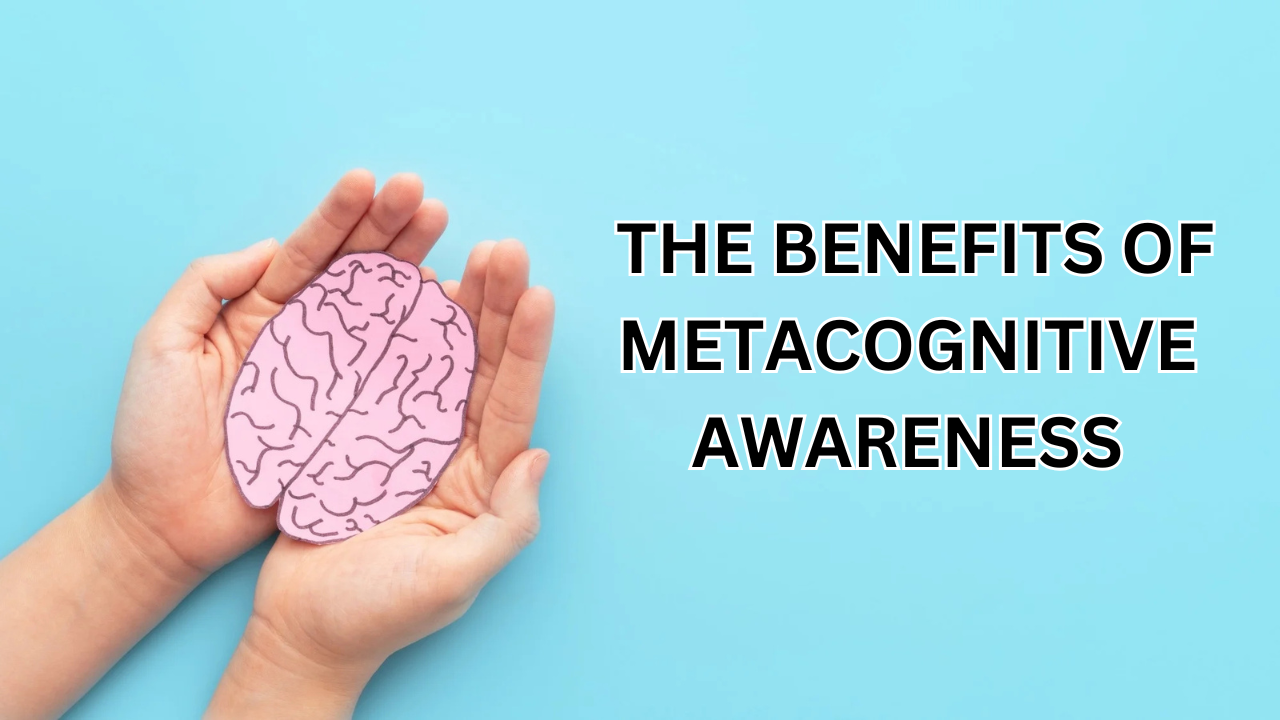Metacognitive awareness refers to the ability to recognize and understand one thinking processes particularly when it comes to learning and problem-solving this self-awareness allows individuals to monitor regulate and optimize their cognitive strategies leading to more effective learning and decision-making by developing metacognitive skills individuals become more adept at recognizing what they know identifying gaps in their knowledge and adjusting their approaches to learning accordingly for example, students aware of their struggle with a particular subject can adjust their study methods and seek additional resources or focus on specific areas of difficulty.
The benefits of metacognitive awareness extend beyond academic achievement it fosters critical thinking and enhances problem-solving abilities as individuals become more skilled at evaluating the effectiveness of different strategies and adapting them as needed metacognition is linked to greater self-regulation enabling individuals to manage their time and resources more efficiently it also enhances memory retention by encouraging active learning techniques such as self-testing and reflection metacognitive awareness empowers individuals to take ownership of their learning leading to greater independence confidence and overall cognitive growth as a result those with strong metacognitive skills are often better prepared to face complex tasks overcome challenges and make informed decisions.
Benefits of Metacognitive Awareness:
Metacognitive awareness offers a range of powerful benefits that extend across various aspects of learning personal growth and problem-solving one of its primary advantages is the ability to enhance learning efficiency by understanding one cognitive strengths and weaknesses individuals can tailor their study methods to be more effective for instance someone who recognizes that they struggle with memorization may choose to use techniques like spaced repetition or active recall to improve retention this awareness also helps individuals identify when they do not fully understand a concept prompting them to adjust their approach or seek clarification before moving on leading to deeper comprehension and mastery of new material.
In addition, metacognitive awareness promotes better decision-making it encourages individuals to reflect on their thought processes and recognize biases or assumptions that might cloud their judgment by fostering a habit of critical thinking and self-reflection people become more adept at evaluating different perspectives and weighing options before making decision both in academic and real-world scenarios this ability to step back and analyze one thinking leads to greater problem-solving skills as individuals can adapt strategies based on the situation at hand rather than relying on a one-size-fits-all approach.
Components of Metacognitive Awareness:
Metacognitive awareness is a multifaceted concept that involves several key components, each of which plays a critical role in how individuals monitor regulate, and improve their thinking processes the first major component is knowledge of cognition which refers to an individual understanding of their cognitive processes this includes an awareness of what strategies work best for learning how to organize information effectively and recognizing when one does not understand a concept or needs more information it also involves knowing the limits of one knowledge which helps individuals identify gaps and seek out resources to address those gaps.
The second component is metacognitive regulation which involves the ability to control and adjust one cognitive processes while learning or problem-solving this includes planning monitoring and evaluating the effectiveness of strategies being used planning refers to setting goals and choosing appropriate strategies before beginning a task while monitoring involves tracking progress and assessing whether the strategies are working as intended evaluation is the final step where individuals reflect on the success of the chosen strategies and decide whether they need to adjust their approach or try a new strategy this regulation is crucial for adapting to challenges and refining techniques for better results.
Strategies for Developing Metacognitive Awareness:
Developing metacognitive awareness involves consciously cultivating skills that allow individuals to better understand and control their cognitive processes one effective strategy is self-monitors which encourages individuals to actively track their thought processes and learning strategies as they engage in tasks this can be done through regular reflection asking questions like progress and identifying areas of difficulty by regularly pausing to check one understanding and evaluating whether the current strategy is working individuals can adapt their approach in real-time making learning more effective and intentional.
Another key strategy is goal setting and planning when beginning a task it is important to establish clear achievable goals and develop a plan to reach them breaking down large tasks into smaller manageable steps helps individuals stay focused and organized this process also encourages them to think about the strategies they will use such as whether to take notes highlight key information or use visual aids depending on the task at hand having a plan in place allows learners to engage in more strategic thinking as they are aware of the methods they intend to apply and can adjust them if progress is as expected.
